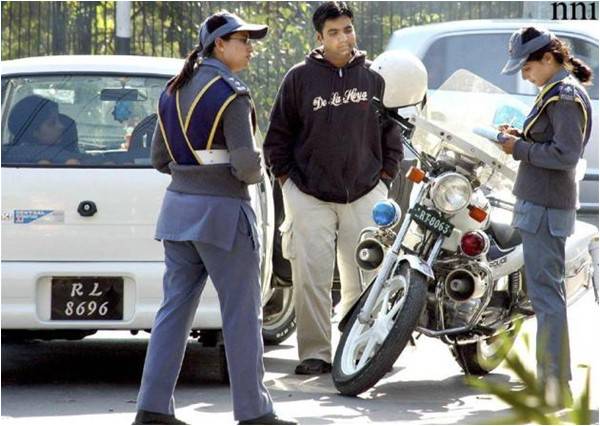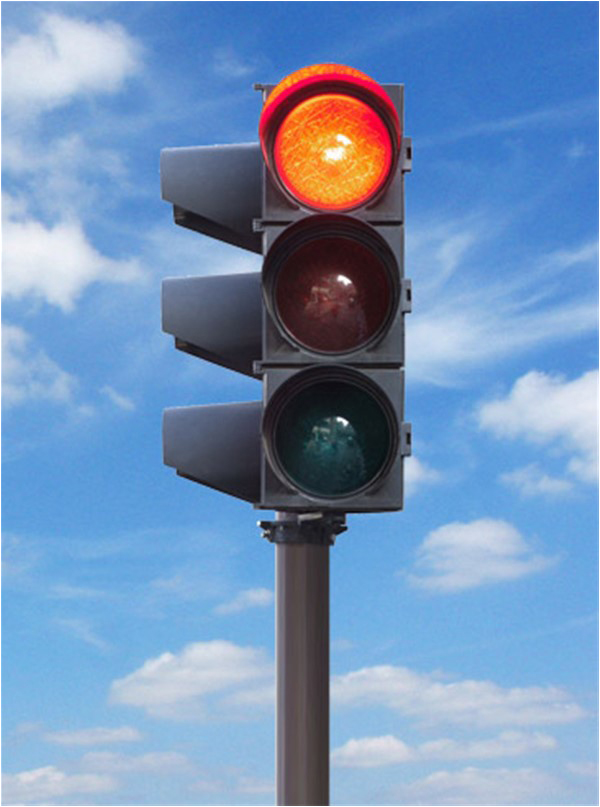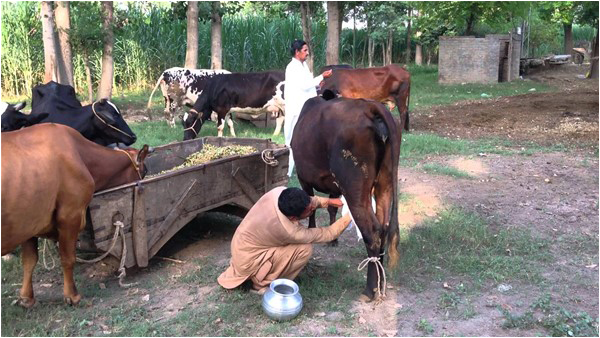
A little boy of five, son of a relative living in Toronto was visiting Karachi for the first time. As he was driven around town he seemed quite intrigued every time vehicles went through a red traffic light. A week later, just as another car broke the signal, he jumped up with excitement. “I understand now”, he cried out in glee and triumph, “In Pakistan, red means green!”
The observation of a child in this anecdote is a precise summary of how things work in Pakistan. The red light represents the Law. It says ‘stop’. Treating red light as green is the System.
Normally, one would expect that breaking the red light would result in a large number of accidents, but evidence suggests that it is not the case. The reason is simply that almost everyone is following the System of running the red light and thus there is mutual caution among the violators.
Similarly when a dispute occurs between two parties, neither expects to get a resolution through the legal system. The parties approach the court only to register a case to establish that there is a dispute. After that they sit across the table to resolve the problem, failing which they resort to violence.
The Law does not work, but the System does. This has nothing to do with whether an action is legal or illegal.
I once confronted the driver of a car who was coming from the wrong side of a one way road in a busy commercial area and blocking my way. He got out and started hurling abuses at me. “I know it is the wrong way, I know I am breaking the law, and I don’t give a damn because I only follow the laws set out by Allah!” Things got more aggravated when I pointed out that the Almighty is too busy to draw up traffic laws in Karachi. It was then that I understood that I was stupidly following the letter of the law and the other man was simply following the System. Now I do not assume that any traffic law will be followed and just drive more carefully. I have joined the System and I am at peace.
Even our honorable judiciary may possibly have missed this distinction. Recently, the highest court in the land ordered that the dairy farmers stop injecting the cows with chemicals that enhance milk production. No doubt the intentions are noble but how exactly does anyone plan to implement this ruling? I do not see cows lined up as witnesses in the corridors of the august court testifying whether they have received the illegal injection. What needs to be understood here that the process of milk production is in the hands of the Gujjar community who have their own organisation. If the seniors of the community decided that there would be no injections, only then it will happen.

It is usually said that there is ‘anarchy’ in Pakistan. In the everyday sense anarchy is defined as “a situation in which there is no organisation and control, especially in society, because there is no effective government”. However, if that were the case Pakistan would have descended into chaos and mayhem where nothing could be resolved without violence. To understand why life still moves on in Pakistan more or less normally one has to refer to the political definition of Anarchism, i.e., “stateless societies based on voluntary associations”. Anarchy is actually the desired goal of socialism where the state would wither away and the people will form their own rules of collective living. So allowing some cynicism mixed with optimism, Pakistani society is freer than most democracies!
The city of Karachi is full of voluntary associations. Every business, ethnic and religious group has its own organisation and a set of rules and regulations. It could be the association of the business community the Delhi Saudagiran, the car dealers association, the camera market shops association, the Bohra Jammat, the Agha Khanis, or the Pakhtun Biradari of Sohrab Goth. It is the social contracts within the individuals of these groups and with respect to other groups on which the society is functioning. These social contracts are by and large independent of the written law of the land.

In order to survive in Pakistan one must follow the System and not the Law. Only an ‘idiot’ goes through the legal system for a redress of an injustice. A friend’s car was stolen in Islamabad. He reported it to the police. Nothing came about. He then approached a friend who put him in touch with an uncle who worked in the anti-corruption department. After a few days my friend was provided the contact of a Haji Sahib in Peshawar. The Haji Sahib was very sympathetic to his plight and arranged for a rendezvous in some remote mountainous part for the recovery of the car. Of course, this came with a price of about half of the market value of the stolen car.
The real danger Pakistan faces is not the complete breakdown of the law (which has already happened), but the breakdown of the System. Fear the day when the man coming from the wrong side of the road will shoot the man coming from the right side; or vice versa.
The observation of a child in this anecdote is a precise summary of how things work in Pakistan. The red light represents the Law. It says ‘stop’. Treating red light as green is the System.
Normally, one would expect that breaking the red light would result in a large number of accidents, but evidence suggests that it is not the case. The reason is simply that almost everyone is following the System of running the red light and thus there is mutual caution among the violators.
He got out and started hurling abuses at me. “I know it is the wrong way, I know I am breaking the law, and I don’t give a damn because I only follow the laws set out by Allah!"
Similarly when a dispute occurs between two parties, neither expects to get a resolution through the legal system. The parties approach the court only to register a case to establish that there is a dispute. After that they sit across the table to resolve the problem, failing which they resort to violence.
The Law does not work, but the System does. This has nothing to do with whether an action is legal or illegal.
I once confronted the driver of a car who was coming from the wrong side of a one way road in a busy commercial area and blocking my way. He got out and started hurling abuses at me. “I know it is the wrong way, I know I am breaking the law, and I don’t give a damn because I only follow the laws set out by Allah!” Things got more aggravated when I pointed out that the Almighty is too busy to draw up traffic laws in Karachi. It was then that I understood that I was stupidly following the letter of the law and the other man was simply following the System. Now I do not assume that any traffic law will be followed and just drive more carefully. I have joined the System and I am at peace.
Even our honorable judiciary may possibly have missed this distinction. Recently, the highest court in the land ordered that the dairy farmers stop injecting the cows with chemicals that enhance milk production. No doubt the intentions are noble but how exactly does anyone plan to implement this ruling? I do not see cows lined up as witnesses in the corridors of the august court testifying whether they have received the illegal injection. What needs to be understood here that the process of milk production is in the hands of the Gujjar community who have their own organisation. If the seniors of the community decided that there would be no injections, only then it will happen.

It is usually said that there is ‘anarchy’ in Pakistan. In the everyday sense anarchy is defined as “a situation in which there is no organisation and control, especially in society, because there is no effective government”. However, if that were the case Pakistan would have descended into chaos and mayhem where nothing could be resolved without violence. To understand why life still moves on in Pakistan more or less normally one has to refer to the political definition of Anarchism, i.e., “stateless societies based on voluntary associations”. Anarchy is actually the desired goal of socialism where the state would wither away and the people will form their own rules of collective living. So allowing some cynicism mixed with optimism, Pakistani society is freer than most democracies!
The city of Karachi is full of voluntary associations. Every business, ethnic and religious group has its own organisation and a set of rules and regulations. It could be the association of the business community the Delhi Saudagiran, the car dealers association, the camera market shops association, the Bohra Jammat, the Agha Khanis, or the Pakhtun Biradari of Sohrab Goth. It is the social contracts within the individuals of these groups and with respect to other groups on which the society is functioning. These social contracts are by and large independent of the written law of the land.

In order to survive in Pakistan one must follow the System and not the Law. Only an ‘idiot’ goes through the legal system for a redress of an injustice. A friend’s car was stolen in Islamabad. He reported it to the police. Nothing came about. He then approached a friend who put him in touch with an uncle who worked in the anti-corruption department. After a few days my friend was provided the contact of a Haji Sahib in Peshawar. The Haji Sahib was very sympathetic to his plight and arranged for a rendezvous in some remote mountainous part for the recovery of the car. Of course, this came with a price of about half of the market value of the stolen car.
The real danger Pakistan faces is not the complete breakdown of the law (which has already happened), but the breakdown of the System. Fear the day when the man coming from the wrong side of the road will shoot the man coming from the right side; or vice versa.

